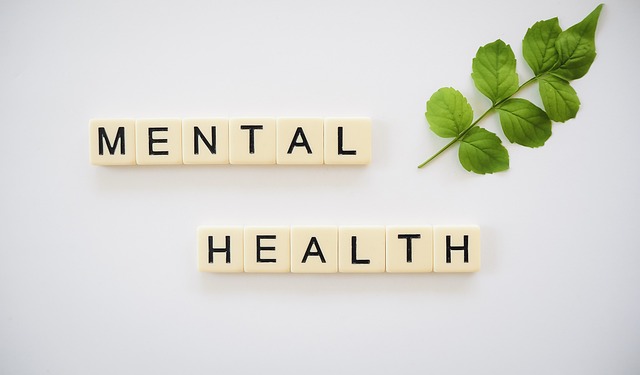Even if Mental Health Awareness Month has come and gone, everyone’s mental health should still be highlighted. And while there has been significant improvement in the previous decade in the open discussion of mental health, there is still a large divide between men and mental health. Stigma, masculine ideals and cultural influences affect how men think about, handle, and manage their mental health.
Although mental illness affects both genders, it is commonly overlooked in men because they are less likely than women to discuss or seek treatment for their mental health. This is troubling, given that three times as many men as women died by suicide in high-income countries in 2018, according to a World Health Organization (WHO) report.
Men don’t face any new challenges when it comes to treating and diagnosing mental illness. Talking about mental health problems in males can raise awareness and help to reduce shame and otherness that many men experience in this situation.
Statistics on Men’s Mental Health
According to Mental Health America (MHA), males in the United States suffer from five fundamental mental illnesses: depression, anxiety, psychosis and schizophrenia, bipolar disorder, and eating disorders.
- Every year, about 6 million men in the United States suffer from depression.
- Anxiety disorders impact more than 19 million people between 18 and 54, with over 3 million men suffering from anxiety, agoraphobia, or other phobia.
- 90% of people diagnosed with schizophrenia before 30 are men.
What Is Stigma, Exactly?
In theory, discussing men’s mental health difficulties with others should be as simple as examining a broken bone or any other physical ailment, but stigma keeps many men mute. Stigma stops men from discussing mental illness with their loved ones, addressing it, and obtaining help. Stigmas affect men’s mental health in several ways, including social, self-stigma, professional, and cultural stigma.
Discrimination Against Professionals
Professional stigma develops when negative sentiments among healthcare providers support the stigmatization of their patients. These beliefs are typically based on fear or misunderstanding regarding the causes and symptoms of mental illness. Furthermore, professionals may experience stigma from the general public or other healthcare professionals due to their employment and contact with persons with mental illness.
Discrimination Based on Culture
The cultural stigma of mental illness relates to how a person’s culture regards mental illness. Culture shapes one’s beliefs, values, and practices, and it has a direct impact on how people understand certain situations. Culture influences people’s inclination to seek help, the type of treatment they desire, and their coping style and support.
Masculine Norms Influence Mental Illness Discussions
Another factor that can hinder males’ mental health and create barriers is the indoctrination into masculine ideals by American society and culture. Masculine norms describe the social expectations and behaviors that relate to men and manhood within a community. Males should not show sadness, grief, or anguish according to the expressions “toughen up,” “man up,” and sometimes, “guys won’t weep,” which are often considered to be the ultimate manifestations of femininity or weakness. Because of these macho norms, men are afraid of losing their masculinity.
Men with a Dual Diagnosis of Mental Illness and Substance Abuse
A dual diagnosis or co-occurring condition occurs when an individual has one or more mental health problems and a substance use disorder (SUD). Because persons suffering from mental illnesses may self-medicate with drugs, and substance abuse can worsen or even initiate symptoms associated with a mental health condition, mental health problems and SUDs regularly coexist. While co-occurring disorders can impact everyone, some substance use issues are more prevalent among men.
According to the National Institute on Drug Abuse, men are more likely than women to use virtually all illicit or illegal drugs. One in every five guys will develop an alcohol use disorder (AUD) at some time. Another source of concern is that men’s mental health disorders and other diseases may be underreported since they are less likely than women to seek treatment for health and substance addiction concerns.
When Is It Appropriate To Seek Help?
If you are concerned that someone you care about is struggling, or if you feel you need help yourself, look for the following indicators:
- A change in mood
- Differences in job performance
- Weight changes
- Anhedonia, sadness, or despair (a loss of pleasure and pulling away from things that used to provide enjoyment)
- Physical symptoms include headaches and gastrointestinal troubles.
If you observe any of these symptoms in a loved one, tell them that asking for help is a sign of strength, not weakness. Get assistance through an appointment with your primary care physician or specialist, or enlist in a center for addiction recovery in Clarksville.
Take Action To Protect Your Loved Ones
Despite the misconceptions, stigmas, and specific risk factors contributing to men having mental health problems and seeking treatment, many men are speaking up about their personal experiences. Speaking up about one’s experiences with mental illness instantly challenges the stigma around it, allowing others to speak up.
Key Takeaway
Despite cultural variations, self-expectations, and societal stigmas, everyone must get the required assistance. This is especially true for men, as masculinity and other stigmas make it challenging to speak up about their mental health. If you’ve made it this far, you should understand why mental health issues must be addressed to aid individuals in need.







